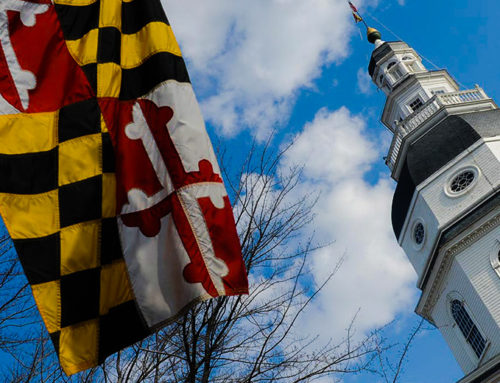View by Topic
Recent Articles
-
EPA Will Keep Current Limits for “Forever Chemicals” in Drinking WaterSaturday, May 24th, 2025
-
Court Indefinitely Pauses SEC Climate Rule LitigationSaturday, May 17th, 2025
-
Maryland is About to Regulate Mold But is the Cart Before the HorseSaturday, May 10th, 2025
-
New Environmental Laws from the 2025 Maryland Legislative SessionSaturday, April 26th, 2025
View by Month/Year
“Green Building Law Update” Headlines
Recent Articles & News from
Stuart Kaplow’s blog
at GreenBuildingLawUpdate.com
- EPA Will Keep Current Limits for “Forever Chemicals” in Drinking Water May 25, 2025
- Court Indefinitely Pauses SEC Climate Rule Litigation May 18, 2025
- Maryland is About to Regulate Mold: But is the Cart Before the Horse? May 11, 2025
- BEPS Redux: The Most Far Reaching Environmental Legislation of the 2025 Maryland General Assembly May 4, 2025
Subscribe to the Green Building Law Update!
Stuart Kaplow brings his expertise and extensive experience to the table with his unique digital publication, "Green Building Law Update". Subscribers receive regular updates to keep them informed about important issues surrounding Environmental Law, Green Building & Real Estate Law, as well as the emerging demand for Environmental Social Governance (ESG).
Get fresh content through the lense of Stuart Kaplow's cutting-edge expertise, innovative commentary and insider perspective. Don't miss another issue! Subscribe below.
Oregon’s Measure to Pay for Regulatory Taking of Property Portends Well for Maryland
In a major victory for property rights, on November 2, 2004, Oregon voters passed Ballot Measure 37 with 60% of the vote.
The measure provides that an owner of private real property is entitled to receive just compensation when a land use regulation is enacted after the owner (or a family member) became the owner of the property, if the regulation restricts the use of the property and reduces its fair market value.
If an existing property owner proves that a subsequently enacted land use regulation (including zoning and environmental laws) restricts the use of the owner’s property and reduces its value, then the government responsible for the regulation will have a choice: pay the owner of the property an amount equal to the reduction in value or modify, change or not apply the regulation to the owner’s property.
The measure allows the state, county, city or metropolitan district to adopt procedures for processing claims for compensation, but prohibits those procedures from being treated as a prerequisite to the filing of a claim in circuit court.
The intentionally very broad measure only does not apply to commonly and historically recognized public nuisances, public health and safety regulations, regulations required to comply with federal law, and regulations restricting or prohibiting the use of a property for the purpose of “selling pornography or performing nude dancing”.
The measure specifies that compensation is due if the regulation remains in force 180 days after the owner makes written demand for compensation. After that time, the owner may file an action in the circuit court in the county in which the property is located. Significantly, the measure also specifies that the property owner is entitled to reasonable attorney fees, expenses, costs and other disbursements reasonably incurred to collect compensation.
It is of note that Oregon voters passed substantially the same measure 4 years ago, that version having been rejected by the Oregon Supreme Court on a technicality. The new measure will become effective on December 2, 2004 and the Governor has directed state agencies affected by Measure 37 “to craft a process that provides for a clear and consistent mechanism for citizens to file claims under the adopted measure”.
Given that the growth area boundaries in Oregon are often cited as the philosophical underpinning of Smart Growth, one can only ponder if this measure protecting private property rights portends a shift in land use policy in Maryland and elsewhere.









